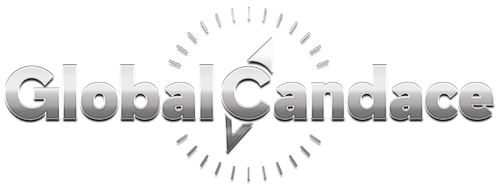Are you planning a new technological project and you still don’t have all the aspects defined? Today we tell you what you need to know about the Ruby programming language. Get to know this quite versatile technology of interest to both experts and beginners.
What is Ruby?
Ruby is an open source, dynamic programming language, mainly object-oriented, but also addressing functional programming. Among its features, simplicity and efficiency stand out: it allows you to do a lot with just a few lines of code.
Ruby stands out for its readable syntax and its focus on developer productivity. It’s inspired by various programming languages such as Perl, Smalltalk, and Lisp, and it combines object-oriented programming features with functional programming characteristics.
Features of the programming language Ruby
- Interpreted. That is, Ruby interpreter needs to parse the code and translate it into machine language understandable by a computer, but there is no previous compilation process like in C or Java.
- Dynamic and flexible. It can be used to alter code at runtime. This allows for greater flexibility in code writing and the creation of more expressive programs.
- Readable and expressive. Ruby takes pride in having a clean and readable syntax that resembles natural language. This facilitates code understanding and maintenance, fostering rapid development.
- Open source and cross-platform. It can be freely downloaded from the official website and run on different operating systems.
- Object-oriented. Everything in Ruby is an object, even basic data types like strings, numbers, or even boolean values. This allows for the creation of classes, inheritance, polymorphism, and encapsulation, making it easier to build modular and reusable programs.
- Backed by a large community. Ruby has an active community of developers and a wide range of libraries and frameworks available. For instance, Ruby on Rails is a highly popular web framework built on Ruby, used for developing robust and scalable web applications.
What is this language used for?
It allows developing different types of applications, namely: web service applications, email clients, data processing and network applications.
Many famous tools are programmed with Ruby. Among them, the best known are Twitter, Twitch, Groupon, Airbnb and Shopify. Also, there are other large projects that use the Ruby on Rails framework, such as: Github.
Here are some of the most common uses of Ruby:
- Web development: especially in combination with the Ruby on Rails framework.
- Task automation: Ruby’s readable syntax and its ability to manipulate files and perform operations in the system make automating repetitive processes easier.
- Rapid prototyping: it’s an excellent choice for quickly prototyping applications. It allows developers to rapidly create functional prototypes to test ideas and concepts.
- Data analysis: it has libraries and frameworks like Rubygems and SciRuby that facilitate data analysis and manipulation.
- Game development: especially for indie games and 2D games. Libraries like Gosu provide graphical and input capabilities for game development in Ruby.
- Test automation: libraries like RSpec and Cucumber enable writing human-readable automated tests; this makes the creation and execution of quality tests easier.
Why is the programming language Ruby suitable for beginners?
Ruby is considered a suitable language for beginners for several reasons. Firstly, its syntax is readable and expressive, making it easy to understand the code, especially for those who are starting in programming. Ruby’s structure resembles natural language, and its syntax is intuitive, making the code simpler to comprehend.
Additionally, Ruby is easy to learn. Its simple and consistent syntax, along with a wide variety of documentation and learning resources available, make it an accessible language for beginners looking to delve into programming. Ruby also focuses on developer productivity. It provides features and libraries that enable the automation of common tasks and the writing of clean and concise code. This is beneficial for new programmers as it allows them to develop applications more quickly and efficiently.
The Ruby community is active and friendly, which is highly beneficial for beginners. Numerous forums, study groups, and online resources exist where they can receive support and guidance during their learning process.
Moreover, Ruby is a flexible language used in a variety of applications, from web development to data analysis. This allows beginners to explore different programming areas and find the one that interests them.
Lastly, Ruby has beginner-friendly frameworks like Ruby on Rails that facilitate web development. These frameworks provide a structure and clear guidance, allowing beginners to start building web applications effectively and efficiently.
In conclusion, the Ruby programming language will serve you well in planning and executing various types of systems and applications. Remember that at MyTaskPanel Consulting, we have the best professionals to develop your projects.










